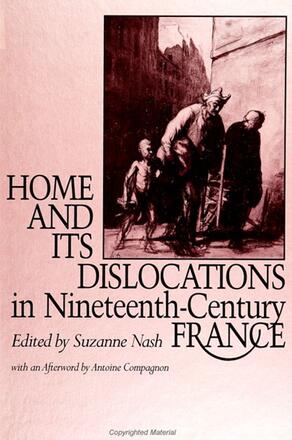
Home and its Dislocations in Nineteenth-Century France
Alternative formats available from:
Description
The nineteenth century witnessed an unprecedented social restructuring that disrupted traditional notions of people and place, country and city, private and public spheres. The break with the old order and the entry into the industrial age was most dramatically played out in France, with the growth of a new urban middle class under the July monarchy and the rebuilding of Paris by Haussmann under the Second Empire. The personal, immediate, and radical effects of these changes produced an altered conception of the meaning of home and a homeland.
Focusing primarily on mid-nineteenth-century France, these essays, by noted literary critics, offer fascinating new accounts of the relationship between the social history of home and homelessness and the imaginative expressions of the age. This probing interdisciplinary approach, combining theoretical sophistication with historical detail, addresses the fundamental importance of class and gender to the modern history of homelessness. Its provocative readings of well-known texts provide a model of cultural studies at its best and most serious.
Suzanne Nash is Professor of Romance Languages and Literature at Princeton University.
Reviews
"Home and Its Dislocations offers an impressive level of social and historical awareness while providing fresh insights on the realist novels, utopian fantasies, and urban discourses of the nineteenth century. The book is a highly innovative collective endeavour illuminating such topical issues as homelessness and dispossession in the genesis of cultural modernity."—Catherine Nesci, University of California, Santa Barbara